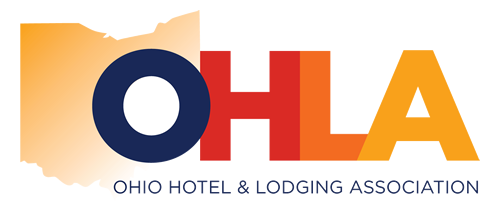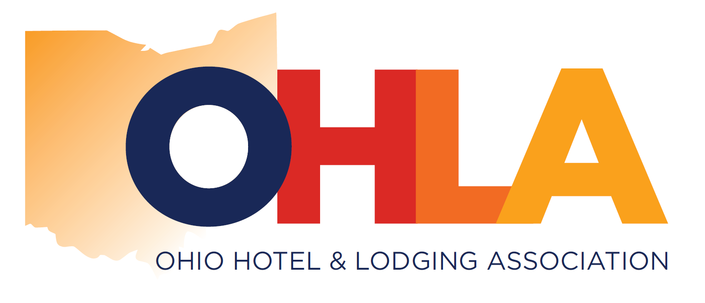Government Affairs
Pandemic Relief
OHLA worked tirelessly to gain support at the local, state and national level for the industry most heavily impacted by the pandemic. This included securing actions to allow hotels to operate and host group events, direct financial support in the form of state grants for hotel & lodging businesses, property tax relief due to pandemic impacts, liability protections, access to federal programs and more.
Tax Parity for Hotel Intermediaries
Online Travel Companies (OTCs) advertise hotel rooms and charge customers the same or more as hotels do when they sell their rooms directly. But OTCs do not remit taxes on the amount they charge customers. As a result, hotels, which are often locally owned, are taxed at a higher rate than the out-of-state OTCs for the same room, sold for the same amount, on the same day. Ohio and its communities lose out on revenue needed for infrastructure, law enforcement, destination marketing and other priorities. The burden falls on Ohioans. Ohio should join the growing number of states that are eliminating the OTC tax loophole and require these out-of-state companies to remit the tax they acknowledge in internal memorandum they owe.
Short-Term Online Rental Market
Ohio’s lodging industry wants to ensure good choices for travelers that support the growth of our state’s travel economy, while protecting guest health & safety; ensuring parity with other businesses in liability, regulation and taxation; and ensuring these rentals do not have a negative impact on neighbors or neighborhoods. It is critical to enable these new businesses, while ensuring the applicability of appropriate local oversight.
Ohio's Lodging Tax Model
Lodging taxes work in Ohio because our model is based on local control, and because it ensures that an adequate amount of revenue raised by taxation of our business is invested in economic development activities which produce more travel, more visitor spending, and more business overall. We must ensure that this model is not changed to use one industry as a source of revenue for unrelated programs, or to increase the tax burden on travelers such that Ohio becomes an uncompetitive travel and event destination. Lodging tax must comply with the principles in existing statute. New models such as Tourism Improvement Districts can provide additional options for economic development, but must involve appropriate controls and protections for hotels.
Preventing Burdensome and Costly Regulations
OHLA is continuously involved in the review of existing and proposed new regulations and ensures that our industry is considered and has a voice. We have also created a more collaborative and business-friendly relationship with the Division of State Fire Marshal.
Destination Marketing
To allow its effective marketing efforts to have greater reach and produce more travel business, Ohio should be competitive in committing adequate resources at the state and local levels to promote travel business and spending throughout the state. Ohio’s funding model for state travel marketing should be permanent and rank higher than the bottom half amongst all states.
Workforce Development
The hotel & lodging industry advocates for investment in education & workforce programming and collaborates with relevant departments and agencies on helping ensure availability of quality candidates for a growing workforce that enjoys opportunities for growth and high job satisfaction.
Anti-Human Trafficking
Ohio’s hotel & lodging properties seek opportunities to collaborate with federal, state and local agencies to combat the scourge of human trafficking. Additional opportunities for resources from the state can be put to effective use by the industry positioned most closely on the front line of this effort.
Improving Infrastructure & Public Services
Growing the travel economy requires investment in maintaining and improving our state’s public infrastructure. Hotel & lodging properties also rely on local governments for the essential services they need to operate in a safe and secure environment. OHLA works with a coalition to produce more funding support for this purpose.
Building a More Business-Friendly, Pro-Jobs Environment
The hotel & lodging industry must be strongly represented in all discussions which affect commerce throughout the state, including taxes, licensure, workers compensation, health care, labor law, energy, environment, education and more.
Consumer Data Privacy
Efforts to address consumer privacy concerns must take into account business realities and the unique nature of hotel & lodging transactions.




